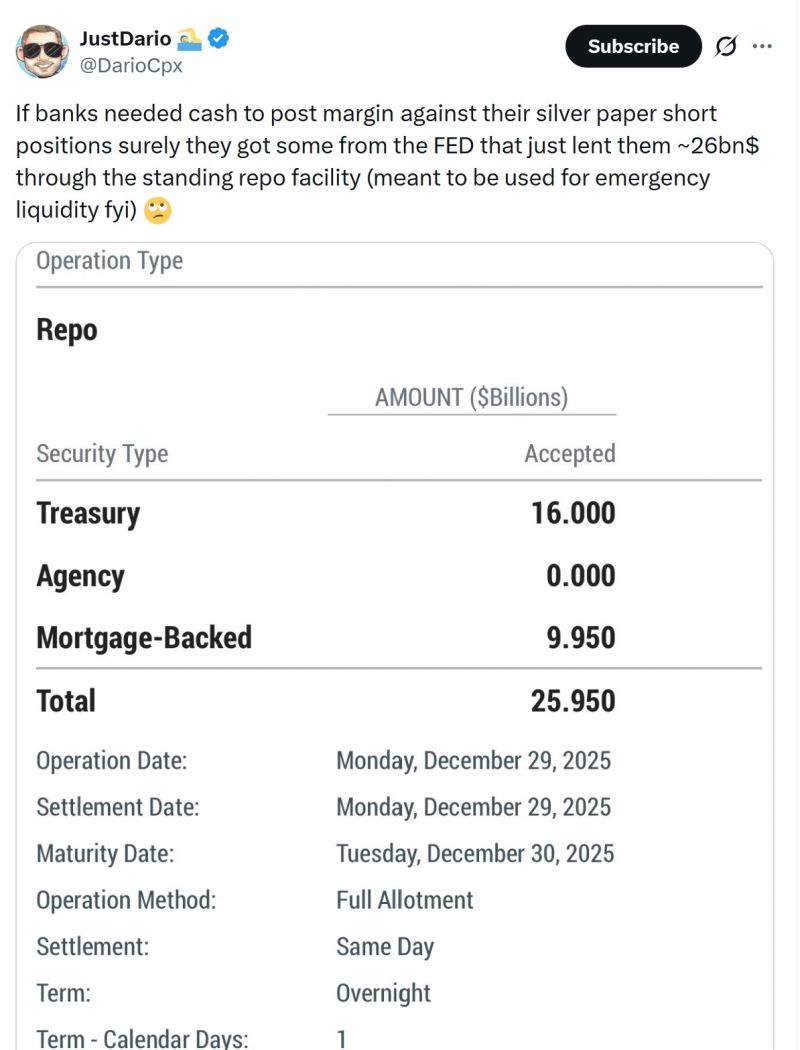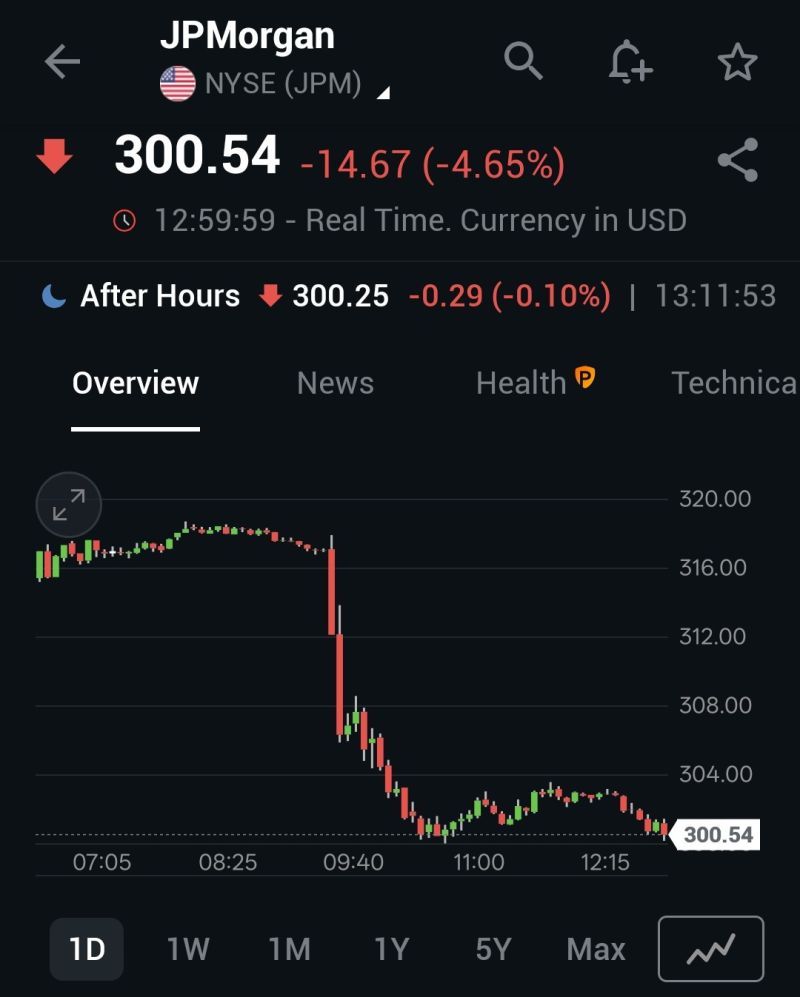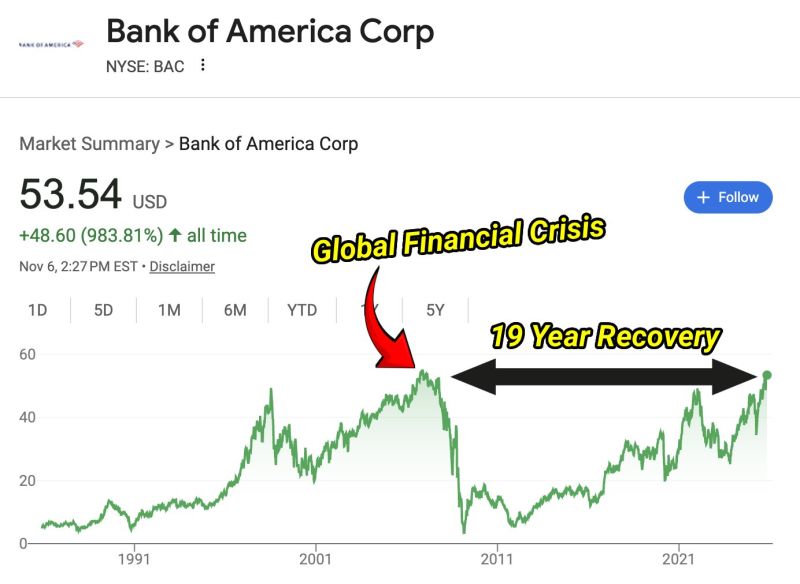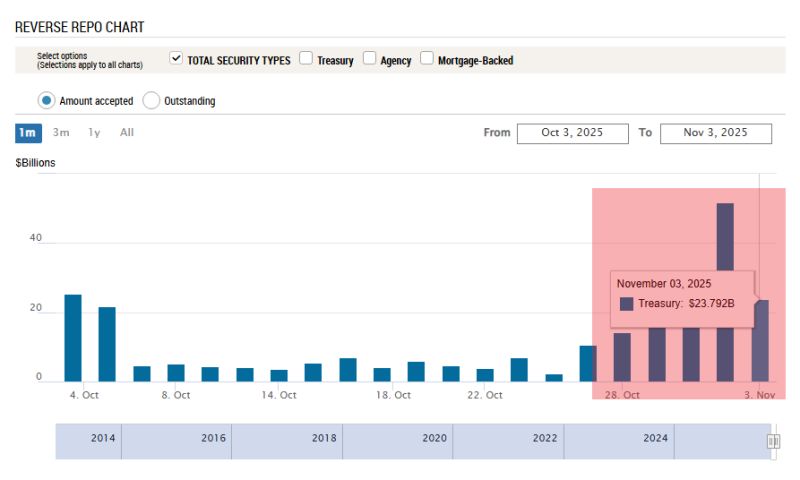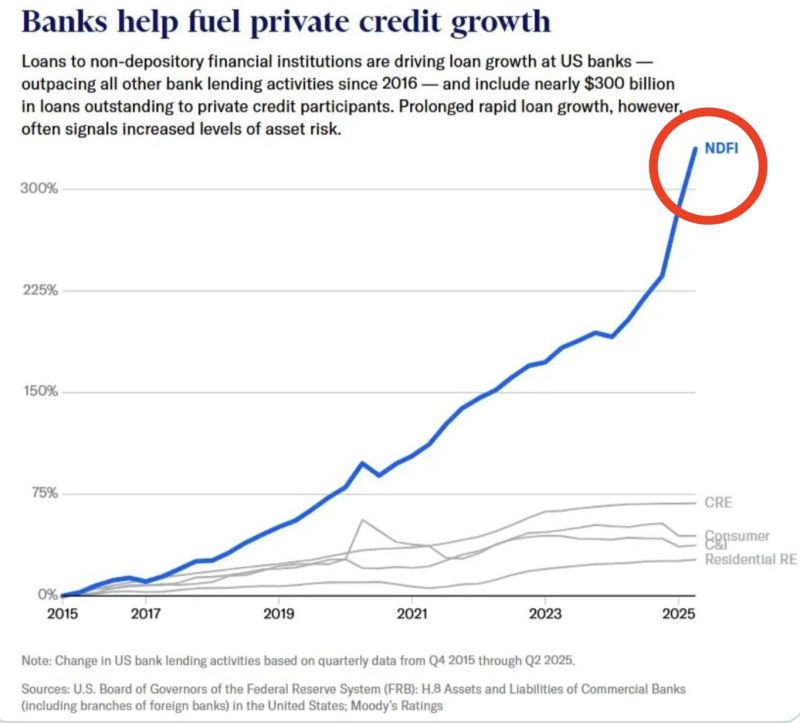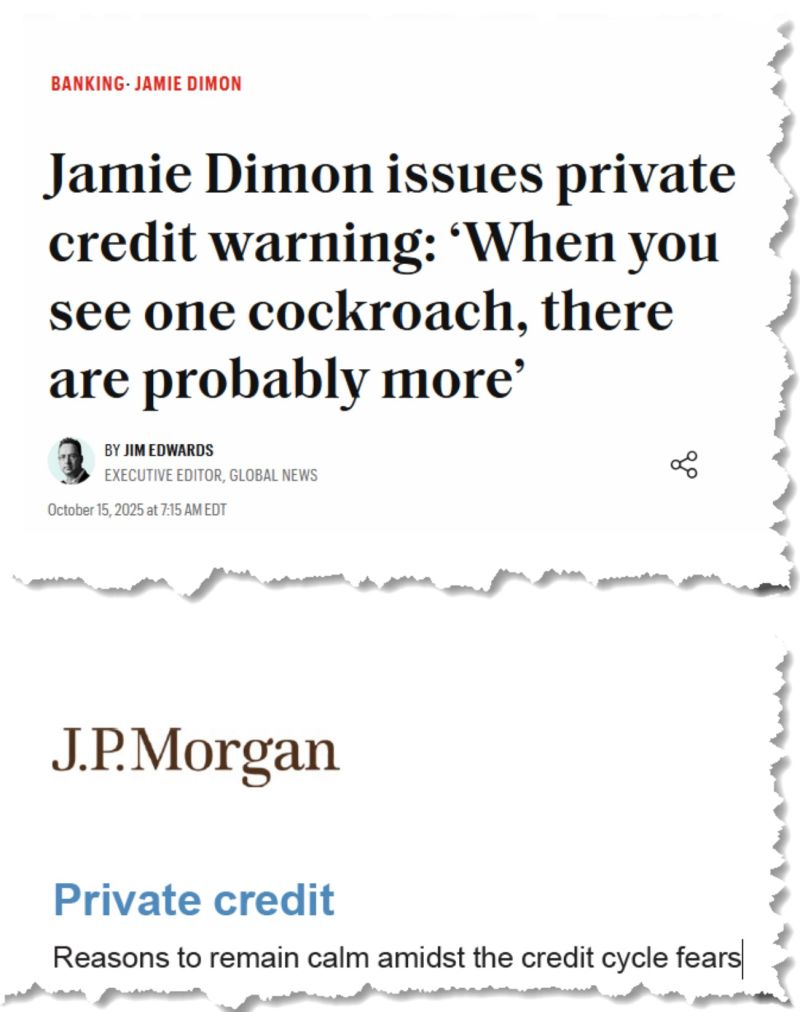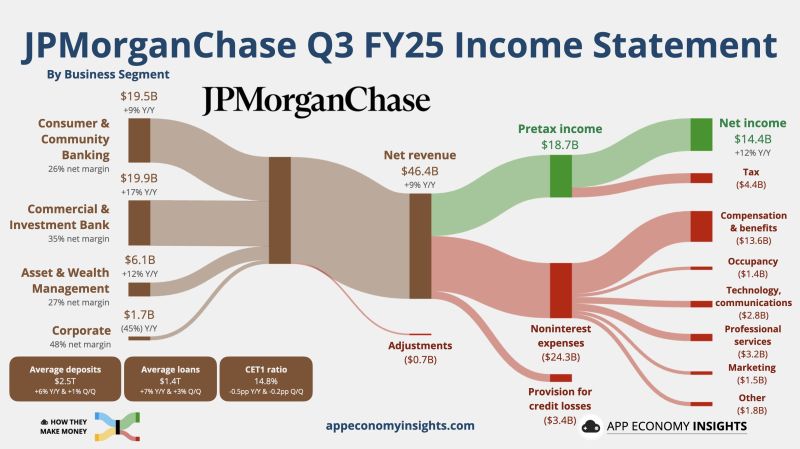Straight from the Desk
Syz the moment
Live feeds, charts, breaking stories, all day long.
- All
- equities
- United States
- Macroeconomics
- Food for Thoughts
- markets
- Central banks
- Fixed Income
- bitcoin
- Asia
- europe
- investing
- geopolitics
- gold
- technical analysis
- Commodities
- Crypto
- AI
- Technology
- nvidia
- ETF
- earnings
- Forex
- china
- Real Estate
- oil
- banking
- Volatility
- energy
- magnificent-7
- apple
- Alternatives
- emerging-markets
- switzerland
- tesla
- United Kingdom
- Middle East
- assetmanagement
- amazon
- microsoft
- russia
- ethereum
- ESG
- meta
- Industrial-production
- bankruptcy
- Healthcare
- Turkey
- Global Markets Outlook
- africa
- Market Outlook
- brics
- performance
Fed to the rescue of banks again ???
REPO $26B on Monday 8:30 am
🚨 In case you missed it...
JPMorgan cracked nearly 5% yesterday after the bank told investors that it will spend billions of dollars more in expenses ...
Yesterday was officially the first day Bank of America stock has fully recovered from the Global Financial Crisis.
Source: Dividendology @dividendology
BREAKING: U.S. Banks
FED just did it again! Another $24 Billion injection into the U.S. Banking system Make that $125 Billion over the last 5 days Source: zerohedge
This chart shows how bank lending has quietly reshaped the credit world
Since 2015, loans to non depository financial institutions (NDFIs) basically private equity and private credit funds have skyrocketed nearly 300%, while everything else has barely moved. Consumer loans, commercial real estate, residential lending, all flat. The growth is almost entirely in one direction, banks lending to the lenders. Source: StockMarket.news
Banks warning about private credit quality while funding its growth:
Wells Fargo: $60B lent to private credit BofA: $33B PNC: $30B JPM: $22B Total: Nearly $300B Weird to raise alarms about "cockroaches" when you’re the one feeding them... Source: Bloomberg, junkbondinvestor
J.P. Morgan Crushed Q3 Earnings Estimates as Wall Street’s Dealmaking and Trading Revenue Explosion Drive Revenue Beat
JPMorgan just beat Q3 2025 earnings with net income jumping 12% to $14.4B ($5.07/sh), vs estimates of $4.85-$4.87 per share Revenue climbed 9% year-over-year to $46.4 billion, topping the $45.3-$45.5 billion Street expected. What Drove This? - Investment Banking: IB fees surged 17% to $2.6B as JPM stays #1 on the IB deal making tables for fees - Trading: Trading revenues were also up 25% this quarter to $8.94B despite Q3 being generally slower in markets - Loans: Net Interest Income (NII) came in at $24.1B, up from previous quarters, management raised guidance for 2025 The bank maintained solid capital ratios with ROE at 17% and ROTCE at approximately 19-21% What Happens from Here? - CEO Jamie Dimon noted the U.S. economy showed resilience during Q3 but cautioned about “significant risks” - These include tariffs, trade uncertainty, geopolitical tensions, fiscal deficits, and elevated asset prices - He mentioned that JPM was prepared for a variety of outcomes $JPM JPMorganChase Q3 FY25. • Net revenue +9% Y/Y to $46.4B ($1.5B beat). • Net Income +12% Y/Y to $14.4B. • EPS: $5.07 ($0.23 beat). • FY25 NII ~$95.8B ($0.3B raise). Source: App Economy Insights @EconomyApp Perplexity Finance @PPLXfinance
Investing with intelligence
Our latest research, commentary and market outlooks


